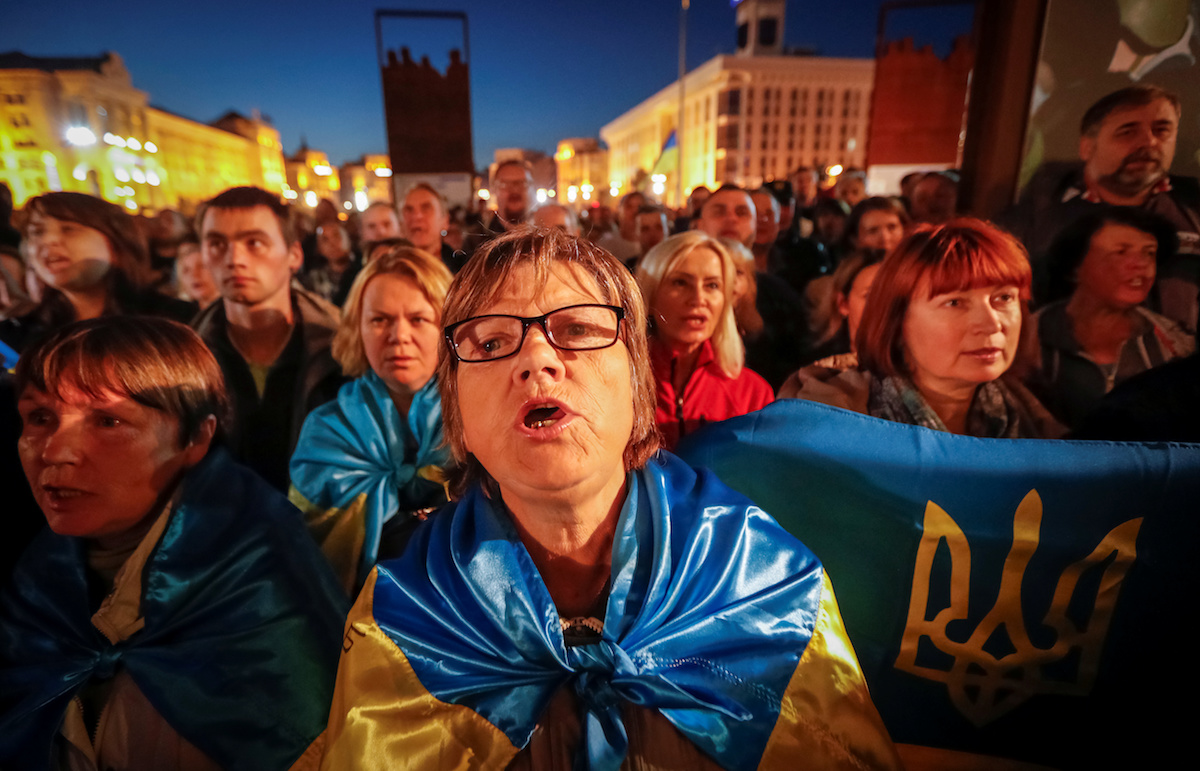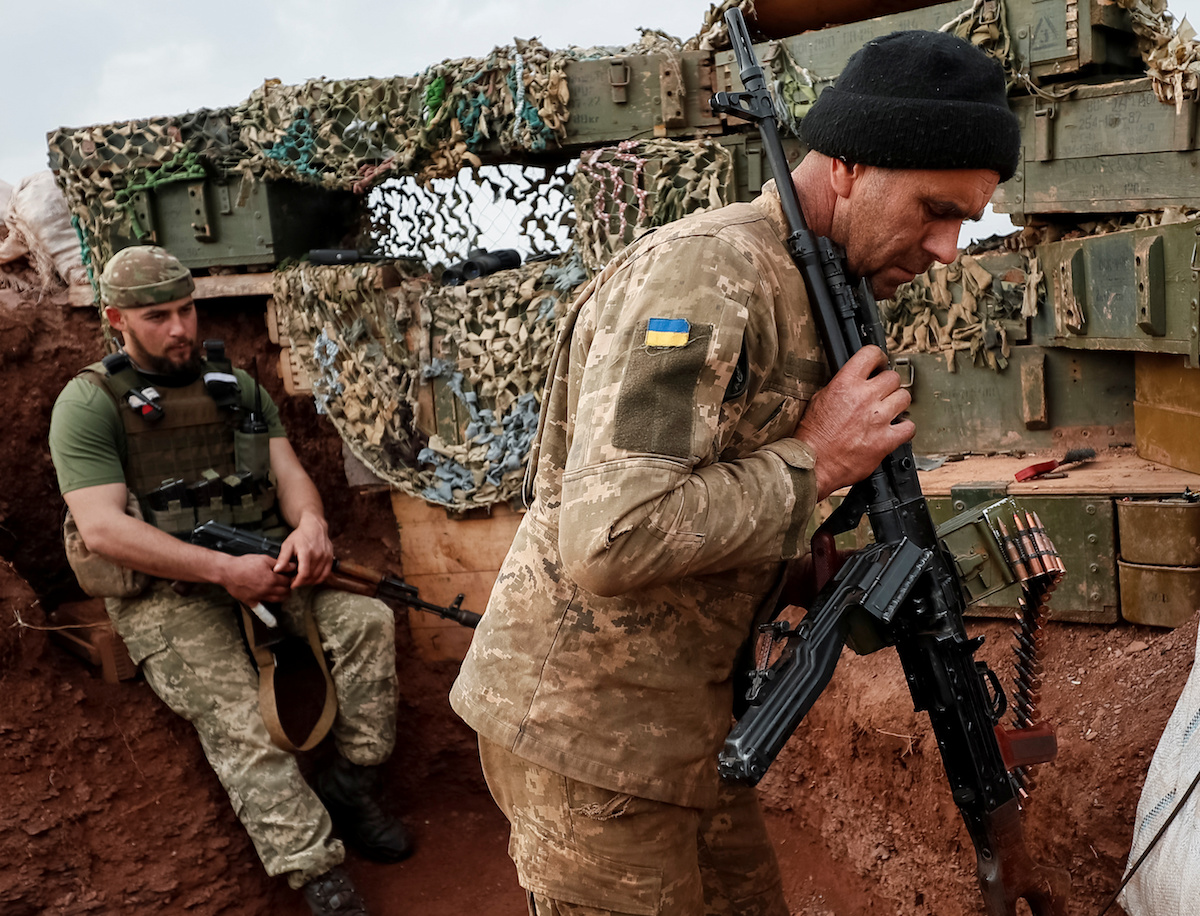Capitulation or long-awaited peace? What has Ukraine agreed to?
Ukraine Has agreed to the so-called “Steinmeier formula” as part of the implementation of the Minsk agreements to resolve the conflict in the country’s east.
In particular, Kyiv agreed to grant special status to the uncontrolled territories in the east of the country if fair elections are held there. This decision, approved by the Western partners of Ukraine, has caused a mixed reaction in Ukrainian society.
What are the Minsk agreements?
The document on the settlement of the armed conflict in eastern Ukraine was agreed on February 11-12, 2015 in Minsk by the leaders of Germany, France, Ukraine and Russia in the format of the so-called “Norman Four” after intense negotiations.
It was signed by representatives of Ukraine, Russia, the OSCE and the unrecognized “people’s republics.”
•Ukrainians pull a fast one over the government
The agreement, in particular, provides for:
• The ceasefire, the withdrawal of heavy weapons from the contact line and the exchange of all prisoners and hostages
• Adoption by Ukraine of a law on the special status of certain districts of Donetsk and Luhansk regions
•Amnesty of parties to the conflict
•Conducting local elections in accordance with Ukrainian law and under the supervision of the OSCE
•The withdrawal of all foreign troops and mercenaries, the disarmament of illegal armed groups
• Transfer of control over the border with Russia to the official structures of Ukraine
•The participation of local authorities in the appointment of judges, the creation of a local “people’s militia”
•Amending the constitution of Ukraine with a view to its decentralization
However, the agreements have not yet been implemented.
Positional fights in the east of Ukraine continue, people from both sides perish. The international community blames Russia. The US and the EU imposed sanctions against Russia due to non-compliance with the terms of the agreement.
As a result of hostilities that have been going on in Ukraine since 2014 between government forces and pro-Russian forces in the east of the country, supported by Russia, more than 10,000 people have died.

What has Ukraine agreed to?
On October 1, in Minsk, the former President of Ukraine Leonid Kuchma, as the official representative of Kyiv, signed with other negotiators consent to the implementation of the so-called “Steinmeier Formula.”
Frank Walter Steinmeier, as Minister of Foreign Affairs of Germany, put forward in 2016 his “formula” for implementing the Minsk agreements.
In particular, it provides for the adoption of an interim law on the special status of Donbass, which will enter into force on the day of the local elections in the region. In the event that the OSCE mission considers the elections to be fair, the law will enter into force permanently.
President of Ukraine Volodymyr Zelensky, whose main campaign promise was to “stop the war,” held a special briefing on October 1.
Zelensky said that under the terms of the agreement a new law will be developed on the special status of the regions, which will come into force only if the elections are held under Ukrainian law.
“And this means that there will be no elections at gunpoint” and “Donbass will no longer be occupied.”
Reaction in Ukraine and the West
Former president of Ukraine Petro Poroshenko called the Steinmeri Formula a ‘Russian invention.’
“Putin tried to push this version, and the Ukrainian side always gave a decisive rebuff, and our German, French and American partners always supported the Ukrainian side,” Poroshenko said.
He stated that the adoption of the “formula” means the weakening and even lifting of sanctions against Russia.
The pro-Russian “Opposition Platform – For Life”, on the contrary, welcomes the agreement.
“We consider this an important demonstration of the political will for a peaceful political settlement of more than five years of protracted conflict,” the party said.
In the party of Yulia Tymoshenko, “Fatherland” called the signing of the “Steinmeier formula” a threat to national security, territorial integrity and sovereignty of the country.
Several dozen people gathered on Independence Square on the evening of October 1 in protest against Ukraine’s support for the “Steinmeier formula”.
Protesters appeared on the Maidan in the evening of the second of October.
At the same time, German Foreign Minister Heiko Maas welcomed the agreement.
“I am glad that the constructive atmosphere in the tripartite contact group in Minsk has led us to achieve such long-awaited progress. This opens the door for the summit of the Norman Four leaders and other stages of the implementation of the Minsk Agreements,” the German minister said.
As political scientist Mikhail Basarab explained on Hromadkse’s broadcast, Steinmeier’s plan is criticized for offering to start a political settlement: holding elections, special status “before the territory is de-occupied, Russian troops leave and Ukraine resumes control of the border”.
At the same time, Basarab notes that the “Steinmeier formula” itself does not offer anything that is not in the Minsk agreements, which Zelensky committed to implement.

The diplomat, the former Ukrainian ambassador to the EU, Andrei Veselovsky, believes that Ukraine’s approval of the so-called “Steinmeier formula” does not mean betrayal of national interests.
“The elections are held in accordance with the constitution and legislation of Ukraine, and this legislation for these elections has not yet been spelled out, if it can be spelled out much tougher and more accurately than the current one, then I would say that this is not betrayal but a victory,” he noted.
At the same time, the leaders of the self-proclaimed “people’s republics” Denis Pushilin and Leonid Pasechnik said that reconciling the “Steinmeier formula” means that “the people of Donbass will determine their own destiny”. According to them, “the Kyiv authorities will not get any control over the border.”
Upcoming summit
While it remains to be seen what the consequences of the decision for Ukraine and its uncontrolled regions will be, there are clear cut political results for Russia and its European partners in the format of the Norman Four.
In particular, the approval of the Steinmeier Formula was a condition on the part of Russia for holding a meeting of the four leaders of Germany, France, Russia and Ukraine.
Some Western experts argue that France and Germany are ready to consider lifting sanctions against Russia if progress is achieved in implementing the Minsk agreements.


















